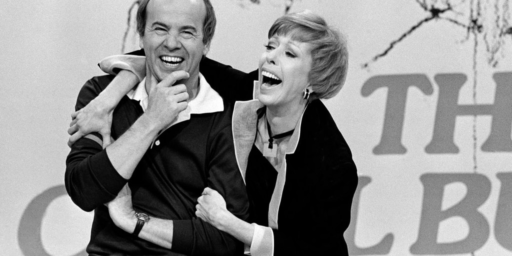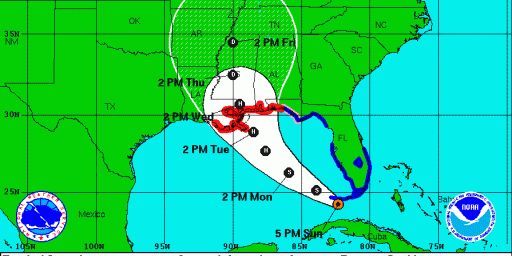Pentagon Backs Dual Leaders in Domestic Crises
The Pentagon’s top homeland defense official told the Senate yesterday that one of the lessons learned from Hurricane Katrina is that active duty and National Guard forces should have separate commanders during crisis situations.
A single military commander should not lead both active-duty and National Guard forces during a domestic crisis, a senior Defense Department official said Thursday. Paul McHale, the Pentagon’s assistant secretary for homeland defense, told senators during a hearing that he has changed his mind concerning whether one person should have been placed in charge of all military forces involved in the response to Hurricane Katrina.
After the storm plowed into the Gulf Coast at the end of August, McHale recommended to Defense Secretary Donald Rumsfeld that a single military officer command active-duty forces and National Guard troops in Louisiana. President Bush agreed, but Louisiana Gov. Kathleen Babineaux Blanco rejected the idea.
McHale told the Senate Homeland Security and Governmental Affairs Committee that he has now come to realize that the concept, which is commonly referred to as dual-hatting, will not work during a domestic catastrophe. “A dual-hatting command falls apart if you have a difference of opinion between two executives,” he said. “In a crisis environment, I think it’s almost inevitable that the president and a governor will have differences of opinion. To put an officer in a crossfire between the two of them, I think is untenable.”
McHale said he still believes that giving one commander total authority during a noncrisis situation, when there is time to plan, makes sense.
It would appear that the Pentagon either learned the wrong lesson from Katrina or is letting political considerations trump military efficiency.
Unity of command is the oldest and most fundamental of military principles. If there is disagreement over fundamental strategy between a governor and the president, one of them has to prevail. If that is to be the governor, so be it. Governors command their National Guard forces unless they have been federalized. If, however, a governor decides he can not handle the situation on his own and requires the intervention of federal troops, then command naturally shifts to the federal government.
The bottom line is that military forces, whether in war or a domestic emergency, must work toward a single set of operational objectives set by a single civilian controlling authority. To divide one’s forces is folly, pure and simple.






Another lovely instance of rewriting rules because of the onetime stupidity of one person who didn’t comprehend her responsibilities under them.
Has anyone looked into whether this tendency played a role in the collapse of the Roman Empire?
I’ve gotta agree. I need to go over the entire article, but my instinctive reaction is that this is just stupid…
(Posted by: legion at February 10,2006 10:09) I’ve gotta agree. I need to go over the entire aticle, but my instinctive reaction is that he is just stupid.
how you suckers make them cool gold boxes?
[/showing off]
Booty, it’s the “b-quote” button just above the input box. You type your excerpt, highlight it, and click the button.
Unless there are some browsers that don’t show the buttons. I used to have that problem with some blogs but never with this one.
Guess McGhee has not been reading the paper:
White House Knew of Levee’s Failure on Night of Storm
By ERIC LIPTON
The Bush administration was alerted to broken levees and flooding in New Orleans hours after their collapse, documents show.
After looking over it in more detail, I see this is just as bad an idea as I first thought…
WTF??? The NG works for the Governor, until the President says “we’re working this on a federal level,” and from then on they work for the President. Period. The problem in Katrina was that this handoff was very sloppily done (please take arguments about who screwed up what to another thread…).
Not to mention – So what if you’ve got a Gov and Pres who disagree? If you break command down into Active and NG, now you’ve got two generals who are just as likely to disagree – All McHale’s idea does is add one more moving part to an already complex system.
Guess anus-san didn’t read the post, which has nothing to do with levee breaks and everything to do with the failure of Gov. Blanco to understand her role in dealing with the threat of the hurricane before it arrived.